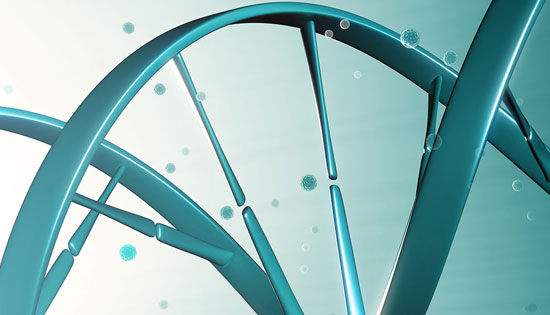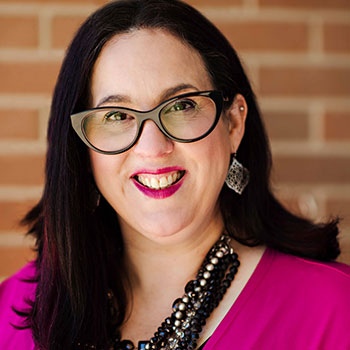Search for academic programs, residence, tours and events and more.
Our PhD program in Biological and Chemical Sciences is research-focused, and operates through an apprenticeship model where you will work closely with a faculty supervisor.
Your research will fall within one or more of our three areas of research strength: environment and health, biotic interactions, and structure and reactivity.

This full-time program can be completed in four years. You’ll be required to present and defend a research proposal in conjunction with a qualifying exam, and write and defend a dissertation.
Our program will turn you into an independent researcher capable of succeeding in careers in research, teaching, industry or government.
The research component of the program is complemented by coursework, which is designed to emphasize the importance of interdisciplinary approaches to biological and chemical research.
Our program has three core research strengths:

"Immerse yourself in all Laurier has to offer while completing your graduate education. Enjoy the journey – remember to have fun too!"
Paula C. Fletcher, associate dean, Faculty of Graduate and Postdoctoral Studies
Take the first step in your graduate education and apply to one of our graduate programs. Follow our three-step admission process — we’ll walk you through how to apply and prepare for your first day as a graduate student.
After you have submitted your OUAC application, paid the non-refundable application fee, and Laurier has received your application, you'll receive an email from gradadmissions@wlu.ca advising you to upload the additional required documentation to Laurier’s Online Registration and Information System (LORIS).
Please note, the application process and the uploading of supplemental documentation, which includes references, typically takes two weeks. To avoid disappointment, please apply early.
An application for admission to our PhD program in Biological and Chemical Sciences must include:
Visit our Graduate Admissions Toolkit for more information about applying.
Proficiency in written and spoken English is essential to graduate studies at Laurier. Applicants whose language of instruction during their previous postsecondary education was not in English must submit evidence of proficiency in English. If applicable, results from accepted testing services must be uploaded to LORIS.
Questions? Contact Geoff Horsman, graduate coordinator (Chemistry) at ghorsman@wlu.ca or Jonathan Wilson, graduate coordinator (Biology) at jmwilson@wlu.ca. For general inquiries, email bcs@wlu.ca.
Regardless of the type of graduate degree program you intend to pursue, financial planning is important. At Laurier, we want to provide you with as much information as possible about a variety of scholarship and funding opportunities and equip you with the skills to manage your finances effectively in the years to come.
Laurier welcomes international applicants to all of our doctoral programs. International students who have confirmed funding from a third-party, such as their employer or a scholarship program in their home country, will be considered for admission. Learn more about admission requirements for international applicants.

Potential future careers for our graduates include:
ASPIRE is Laurier's professional skills development training program for graduate students. The program helps you craft an individualized, extracurricular learning plan tailored to your professional journey and entry to the workplace.
Learn about the interests and ongoing research of our faculty members. If their research interests you, email the professor directly to set up a meeting. Include information about yourself, your skills, your experience, and why you’re interested in their research.
Anthony J. Clarke
Dean, Faculty of Science
Professor
Mihai Costea
Professor
Curator of the Laurier Herbarium
Joseph Culp
Environment and Climate Change Canada Research Scientist in Residence
Christian Danve M. Castroverde
Assistant Professor
Louise Dawe
Associate Professor
Lillian DeBruin
Associate Professor
Douglas Deutschman
Professor
Stephanie DeWitte-Orr
Associate Professor
Associate Dean: Research and Graduate Studies, Faculty of Science
Dmitri Goussev (Gusev)
Professor
Derek Gray
Associate Professor
Geoff Horsman
Associate Professor
Graduate Coordinator, Chemistry and Biochemistry
Vladimir Kitaev
Professor
Erin Leonard
Assistant Professor
Tristan A.F. Long
Associate Professor
Deborah MacLatchy
President and Vice-Chancellor
Professor
Stephen MacNeil
Associate Professor
Ken Maly
Associate Professor
Chair, Department of Chemistry and Biochemistry
Allison McDonald
Professor
Jim McGeer
Professor
Gabriel Moreno-Hagelsieb
Professor
Scott M. Ramsay
Associate Professor
Undergraduate Academic Advisor, Biology
Robin Slawson
Professor
Matthew Smith
Professor
Chair, Department of Biology
Scott Smith
Professor
Kevin Stevens
Associate Professor
Frances Stewart
Assistant Professor
Canada Research Chair in Northern Wildlife Biology
Michael Suits
Associate Professor
Heidi Swanson
Associate Professor
Jarislowsky Chair in Sustainable Water Futures
Dirk Wallschläger
Professor
Laurier Distinguished Research Chair in Aquatic Sciences
Joel Weadge
Associate Professor
Michael P. Wilkie
Professor
Jonathan Mark Wilson
Associate Professor
Graduate Coordinator, Biology
Co-Director, Laurier Institute for Water Science
Zhongwei Zou
Assistant Professor